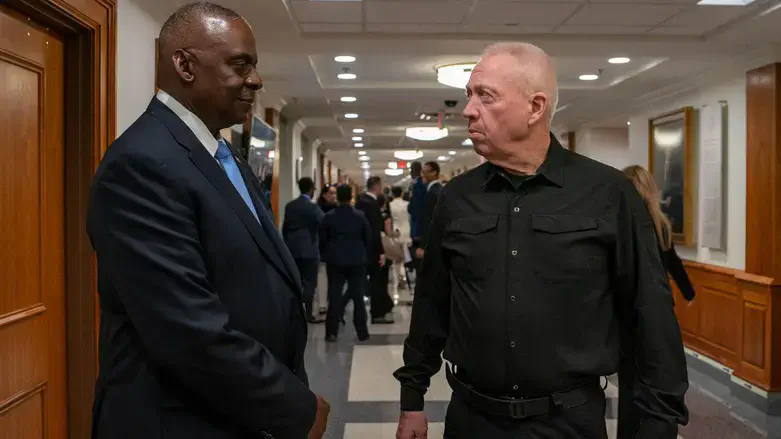
US Secretary of Defense Lloyd Austin spoke on Thursday with Defense Minister Yoav Gallant “to discuss opportunities for regional de-escalation,” said Pentagon Press Secretary Pat Ryder in a statement.
Austin “reaffirmed that the United States remains fully prepared to defend US personnel, Israel, and partners across the region against threats from Iran and Iran-backed proxy groups,” said Ryder, who added that Austin also “reiterated US commitment to a diplomatic arrangement in Lebanon that allows both Lebanese and Israeli civilians to return safely to their homes on both sides of the border.”
The Secretary “also reviewed steps Israel is taking and should continue to advance to improve the dire humanitarian conditions in Gaza, and prospects for a hostage release and ceasefire deal,” according to the Pentagon statement.
The conversation between the two men comes amid reports that Iran’s Supreme Leader, Ayatollah Ali Khamenei, has instructed the Supreme National Security Council to prepare for an attack on Israel.
According to a Thursday report in The New York Times, Khamenei decided to attack after he reviewed a detailed report from senior military commanders on the extent of damage to Iran’s missile production capabilities and air defense systems around Tehran, critical energy infrastructure, and a main port in the south.
On Wednesday, a high-ranking source told CNN that Iran will attack Israel again soon, likely before the US presidential election next Tuesday.
According to the source, Iran's retaliation for Israel's air strikes on its military targets last week will be significant.
White House spokesperson Karine Jean-Pierre later told reporters that the United States will support Israel if Iran does attack.
"Iran should not respond to Israel's retaliation. They should not. If they do, we will support Israel in defending itself, but they should not," she stated.
Meanwhile, US State Department spokesperson Matthew Miller would not offer an assessment about what Iran “may or may not do,” but reiterated the US believes “they should not respond.”
